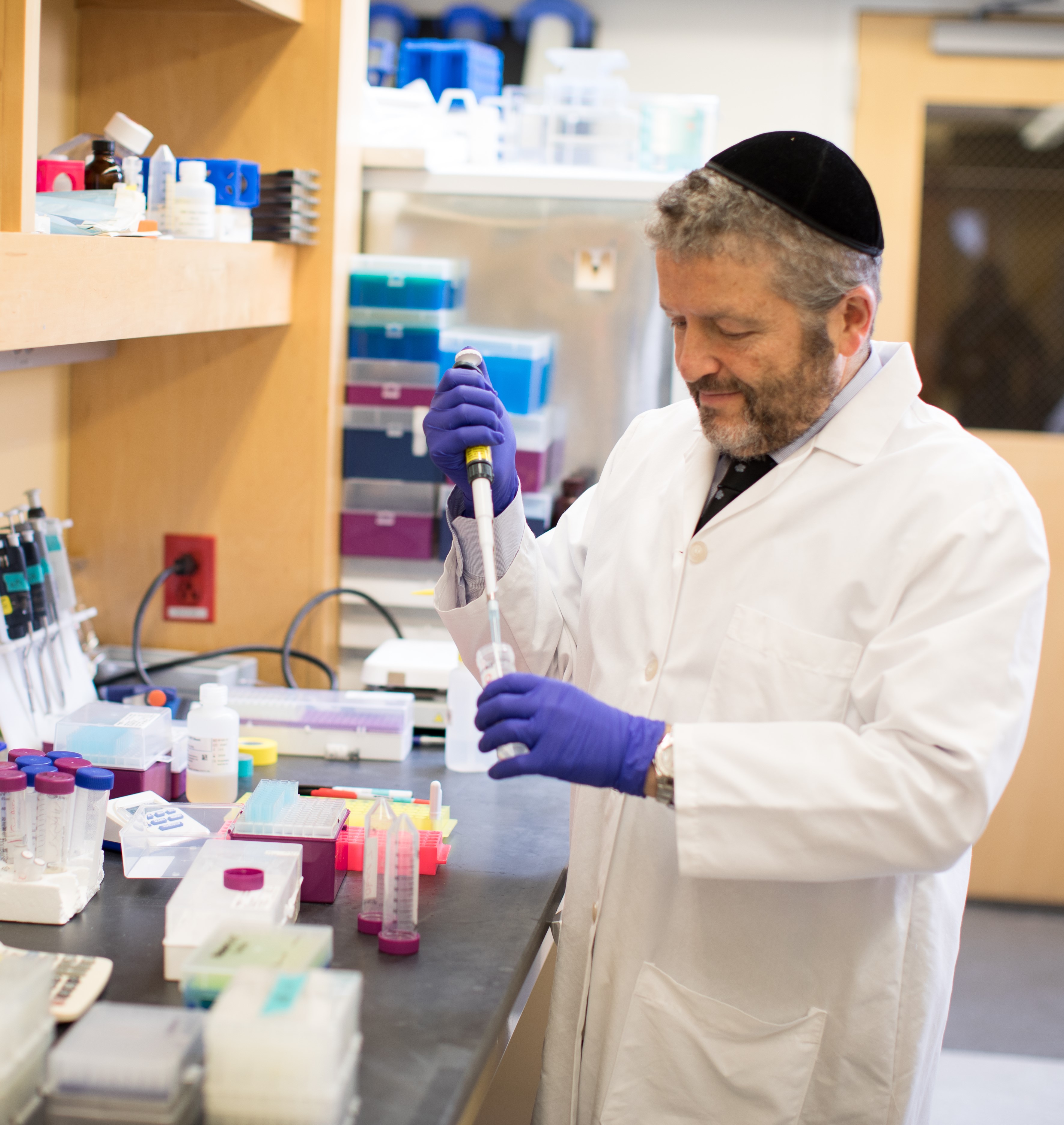
Intranasal Immunization Offers Stronger Protection Against COVID-19
Understanding the Immune Response to SARS-CoV-2 Elicited Via Different Immunization Routes Could Help to Guide More Effective and Long-lasting Vaccination Strategies

Immunizations delivered intranasally (IN) were found to offer stronger and more durable protection against pulmonary infectious diseases, including COVID-19, in a new study published in Frontiers of Microbiology that was conducted by Chandra Shekhar Bakshi, D.V.M., Ph.D., professor of pathology, microbiology and immunology; Alan Kadish, M.D., president of New York Medical College (NYMC) and Touro University (TU) and professor of medicine; and Salomon Amar, Ph.D., D.D.S., vice president for research at NYMC, senior vice president for biomedical research at TU and professor of pharmacology and of pathology, microbiology and immunology—in collaboration with researchers from Lovelace Research Institute in New Mexico. To further enhance their research capabilities, NYMC, a member of TU, formed an affiliation with Lovelace last year.
“While the COVID-19 vaccines administered via intramuscular or subcutaneous (SC) routes have reduced the severity of respiratory infections, hospitalization rates and overall mortality, it has been well established that a parenteral route of administration does not induce the effective mucosal immune response required for the protection of mucosal surfaces of the upper respiratory tract where respiratory viruses like SARS-CoV-2 first enter the body,” said Dr. Amar. “Our study underscores the potential of mucosal immunization approaches in triggering a consistently strong immune response and offering superior protection compared to other methods.”
According to the study, understanding the immune response to SARS-CoV-2 elicited via different immunization routes could help to guide more effective and long-lasting vaccination strategies and address some of the challenges involved with the current COVID-19 vaccines that must be stored at ultra-low temperatures and delivered by health care professionals. Addressing these factors has not only been challenging in developed countries like the United States but is even more problematic in under developed countries, leaving communities vulnerable to continued widespread SARS-CoV-2 transmission.
“Given that the upper respiratory tract also provides the first line of defense against respiratory pathogens, it is prudent to further analyze the viability of IN immunization as a potential platform for overcoming many of the challenges associated with the route of administration of the current COVID-19 vaccine,” said Dr. Amar.

